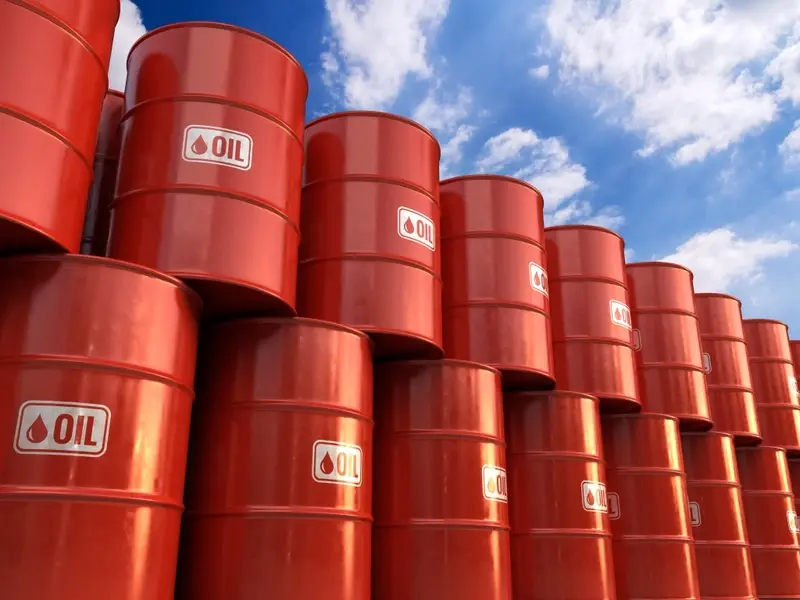
Positive and negative news from China left share prices in London frozen early Wednesday, while concerns about global demand sent the price of oil below $80 a barrel.
The FTSE 100 index opened down 1.76 points at 7,519.63. The FTSE 250 was down 18.62 points at 19,081.46 and the AIM All-Share was down 2.85 points, 0.3%, at 837.34.
The Cboe UK 100 was marginally lower at 753.40, the Cboe UK 250 was down 0.4% at 16, 480.20, and the Cboe Small Companies was up 0.1% at 13,081.61.
On the continent, the CAC 40 in Paris was down 0.1%, while the DAX 40 in Frankfurt was down 0.2%.
Sterling was quoted at $1.2138 early Wednesday, lower than $1.2243 late on Tuesday in London. The euro traded at $1.0458, lower than $1.0519. Against the yen, the dollar was quoted at JP¥137.68, up versus JP¥136.46.
China announced a nationwide loosening of Covid restrictions, following protests against the hardline strategy that grew into calls for greater political freedoms.
Under the new guidelines, some asymptomatic and mild cases of Covid-19 can now quarantine at home, ending a requirement that all positive cases be isolated in centralised government facilities.
This comes as official figures showed China’s imports and exports plunged in November to levels not seen since early 2020.
Beijing’s zero-Covid policy of snap lockdowns, travel curbs and daily mass testing has left businesses reeling, disrupted supply chains and damped consumption.
November imports fell 11% year-on-year, the biggest collapse since May 2020. Exports fell by 8.7% year-on-year, the biggest drop since February 2020, when the country was mired in the early stages of the pandemic.
‘Looking forward, weak external demand could drive China’s exports even lower,’ ING considered.
In Asia on Wednesday, the Japanese Nikkei 225 index closed down 0.7%. In China, the Shanghai Composite closed down 0.4%, while the Hang Seng index in Hong Kong was down 3.2%. The S&P/ASX 200 in Sydney closed down 0.9%.
Amid concerns about global demand, the price of Brent oil fell below $80 for the first time since Russia’s invasion of Ukraine.
‘Trend and momentum indicators hint that the recession fears could well push the barrel of oil toward $70 per barrel despite falling oil reserves in the US,’ said Swissquote Bank’s Ipek Ozkardeskaya.
Brent oil was trading at $79.40 a barrel early Wednesday, lower than $80.35 late Tuesday. The lower price hit London’s oil stocks, with BP, Shell and Harbour Energy losing 1.1%, 1.5%, and 1.7%, respectively, in early trade.
Miner Glencore was down 2.5%, as it received several cuts to its price target. Other miners also fell following the negative economic data from China. Antofagasta was down 1.3%, and Rio Tinto lost 1.1%.
Gold was quoted at $1,772.56 an ounce early Wednesday, down slightly from $1,774.71 on Tuesday.
The FTSE 100’s housebuilders were lower on news that UK house prices fell by 2.3% in November. It marks the biggest monthly drop since 2008, according to the latest Halifax index.
The annual rate of house price growth slowed to 4.7%, from 8.2% in October, Halifax said. The price of a typical UK property stood at £285,579 in November, down from £292,406 in October.
‘While a market slowdown was expected given the known economic headwinds - and following such extensive house price inflation over the last few years (up 19% since March 2020) - this month’s fall reflects the worst of the market volatility over recent months,’ said Halifax Director Kim Kinnaird.
Persimmon was down 1.4%, Barratt down 0.7%, and Taylor Wimpey down 0.9%.
It was shaping up to be a better day for pharmaceuticals, however.
GSK jumped 14% in early trade, as it welcomed a US verdict in a lawsuit which had claimed the Zantac heartburn drug caused cancer.
GSK is one of the FTSE 100’s largest stocks by market cap.
The Florida lawsuit featured roughly 50,000 claims. However, the court said plaintiffs failed to provide enough ‘admissible primary evidence’.
‘GSK welcomes yesterday’s ruling by the MDL Court. Following the 12 epidemiological studies conducted looking at human data regarding the use of ranitidine, the scientific consensus is that there is no consistent or reliable evidence that ranitidine increases the risk of any cancer,’ GSK said in response.
GSK consumer healthcare spinoff Haleon was up 7.6%, having also been exposed to potential Zantac litigation. The stock was also raised to ’overweight’ from ’equal weight’ by Barclays.
Over in Paris, Sanofi - also exposed to the Zantac litigation - jumped 8.1%.
In London, AstraZeneca added 1.3%, and Dechra rose 1.1% in a positive read-across.
‘This outcome is probably the best GSK could have hoped for given how comprehensively the judge in the case dismissed the plaintiffs‘?? arguments,’ commented AJ Bell investment director Russ Mould.
‘While there is some risk of an appeal, and there are other cases outstanding, GSK will be sitting a lot more comfortably than it was before this judgement was handed down.’
In the FTSE 250, greeting card and gift firm Moonpig plunged 17%.
In its first half ended October 31, Moonpig said pretax profit halved to £9.1 million from £18.7 million a year before. Revenue was flat at £142.8 million from £142.6 million, while selling and administrative costs climbed to £63.0 million from £47.0 million.
‘Trading conditions have become progressively more challenging through October and November,’ Moonpig said, as it cut annual revenue guidance to £320 million from £350 million guided back in September.
Mitchells & Butlers added 10%.
M&B reported annual pretax profit of £8 million in the year to September 24, swung from a loss of £42 million the year before. ‘Excluding the impact of utilities, profits broadly recovered to pre Covid-19 levels,’ the pub chain said.
Revenue more than doubled to £2.21 billion from £1.07 billion.
Whilst noting a ‘highly challenging’ trading environment, Chief Executive Phil Urban said he is encouraged by the strength of sales growth at the end of the financial year, which has since improved further.
On AIM, Molecular Energies fell 20%.
It reported a delay in the procurement of a drilling rig by its designated drilling contractor in Paraguay, setting back the spud date for the exploration well.
The delay was ‘due to the numerous consents and approvals needed by the current owner of the rig whose parent is emerging from bankruptcy’, the energy company explained.
The firm now anticipates the start of drilling will occur in the latter part of the first quarter of 2023.
In the US on Tuesday, Wall Street ended lower, with the Dow Jones Industrial Average ending down 1.0%, the S&P 500 down 1.4%, and the Nasdaq Composite down 2.0%.
Still to come on Wednesday’s economic calendar, there is a eurozone gross domestic product reading at 1000 GMT.
Copyright 2022 Alliance News Ltd. All Rights Reserved.




